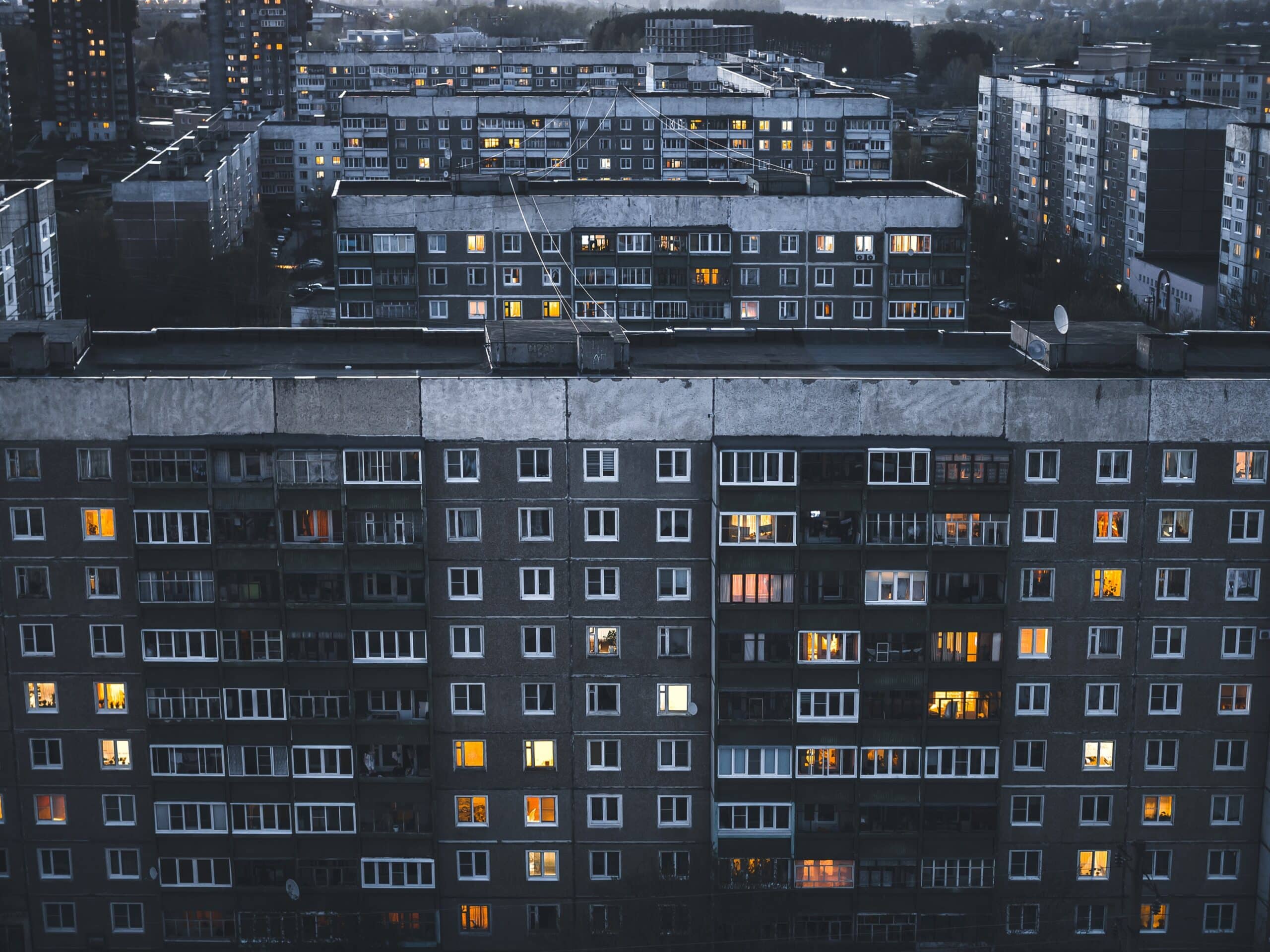
WHAT IS HUMAN PROGRESS?
They say, we live in an age of efficiency and convenience, gone were the days of small town hardships as we now live global lives, in sprawling modern metropolises with large shiny skyscrapers towering over us; fancy jobs at multinational companies enabling us to grow rich; to buy and dress ourselves in global fashion; to buy the latest unimaginable gadgets from Apple stores everywhere; giving us access to global innovations anywhere such as Uber; allowing us to advance throughout the city at light speed; whilst we enjoy our delicious Big Macs from McDonalds found at every corner.
They say, through big business, we now live in a future once only imagined possible by our parents; a world that is getting more interconnected and more centralised. A world that is getting bigger and richer and naturally, a world that is also getting better.
Yet, why aren’t, we satisfied? Why aren’t we happy? Why are so many of us, especially the millennials here, so restless when it comes to acceptance of the world, instead of playing part to it, we seek to become rebellious activists and disruptive entrepreneurs, looking to reject the world order and build a new one?
The reason is because we have inherited this world, a world that was built yesterday.
And the underlying issue is that this world which we inherited was built on an economic model that was designed yesterday. And because of its design being rather simplistic, it has functioned so well, to its purpose that we naturally question whether it overlooks other important dimensions of our society.
You see, our economy was designed with wealth creation as its primary objective. The accumulation of wealth has been central in this model because it has been seen as the only realistic means of improving our standard of living. As a result, we have a society that is largely driven by the pursuit of wealth.
And, by far, the most effective way of accumulating wealth under this model is by the formation and ownership of profitable businesses. Perhaps, that’s why so many of us want to be entrepreneurs and why you often hear the phrase that business runs the world.
But it’s not just about entrepreneurship, this current system is largely driven by a concept called the “economies of scale”, this idea that ultimate wealth comes from expanding in size and increasing in scale, making larger businesses the goal for entrepreneurs. So guided by this concept, expansion has been been the natural target for many businesses which is really achieved through the rampant acquisition and control of resources.
This approach has naturally created a society that is dominated by mass production, massive companies, large industrial complexes and economies that are incredibly centralised and defined by big business. In other words, it has created our society, today.
But when you have a society that is economically optimized in such a particular way, you inevitably have many odd and unintended consequences. And there is increasing concern because there is also growing evidence that these economic laws and beliefs that have so successfully governed and guided us so far, do not provide the right foundation for development that is sustainable, putting our fundamental values at stake. So much so, that we begin to seriously question it.
At the outset, that big business has developed an immense capacity for tremendous social impact today. We feel it. For example, the massive growth and spread of giant ride hailing companies like Uber has certainly changed our lives and provided the great social value of transportation for many of us. I can imagine many of us here today got here by these rides.
And it’s great, we can now go out without the hassle of going out which is an important issue in Asia, where parking and traffic deserves its own TED Talk. Their immense growth has also created livelihood for many ride drivers. We’re talking about substantial social impact.
But emerging social issues have accompanied the growth of such businesses into large scale operations. Aggressive scaling and expansion compounded by excessive price cutting have created an immense and almost monopolistic power in such companies exercised at the ruthless expense and destruction of their competitors, effectively destroying long existing industries, placing many private and taxi drivers under immense financial stress. Millions with massive financial impact and largely displaced. On the other hand, the ride drivers find themselves increasingly dependent on and under the whims of a giant corporate big brother with ultimate control over their lives. Recently, there has even been plans by big brother to automate the fleet in 10 years time, with massive investments in this technology. And that’s why there has been such intense political and social debate about the economic direction of these developments because its impact is socially questionable.
And these situations exist in other industries and form as well because they are an intrinsic part of our economy. For example, constant restructuring by big business to achieve profitability leading to widespread redundancies and regular outsourcing of business units to low cost countries like China leading to job loss at the home economy but also impoverishment in the outsourced country. All these are important social considerations that businesses actively forgo in their progression.Beyond these, we must also consider what sort of social impact, business has on the cultural fabric of our society.
Besides having Big Macs at our easy disposal what does the opening of McDonald’s truly bring in our beloved hometown? It brings an indoctrination of the fast food concept, where meals and taste palettes are becoming increasingly uniform, where dinners last less than 15 minutes. Gone are the days, when we sit around a table with our families over mother’s home cooked meal, perhaps a secret recipe passed down from generations, warm moments that are rapidly disappearing. In fact, this has been such a globally loathed issue that there has been a growing international rebellion known, as the “Slow Food Revolution”, where many towns in the world that have actually boycotted the opening of McDonalds. For example, recently in Italy, they were so angry that they literally threatened Ronald McDonald, some protesters with their sticks of pasta. And let me tell you this, when Italians used beloved pastas as weapons, you know things are serious.
So viewed against this context, it is apparent that having such immense power and social impact over so many lives, big business has proven that it often does not exercise its power in the best of social interest. It is not that they are devious like some evil mastermind plotting the end of the world but quite simply that under the systematic guidance of wealth maximisation, businesses often commit to decisions where social interest is sidestepped and oftentimes be overlooked for the sake of wealth. Because of this, paradoxically, the arrival of industry and the growth of business, does not always mean social progress as we would like to believe it to be.
Interestingly, over the last century, as industries have grown tremendously and our lives ever more enriched, there is an undeniable correlation where pollution levels and natural resource depletion have also risen tremendously.
There is an environmental cost to modern development because businesses utilise environmental resources to create products and through this process, pollution is often created in its aftermath. Though businesses can of course attempt to take measures to reduce these adverse environmental effects, by default, efficiency is pursued at the expense of environmental sustainability.
Because the core purpose of companies under our economic model is to provide returns to investors, therefore the focus is to produce as much as possible in the most cost-effective manner. And so structurally, business are not optimized to review their own environmental impact unless it presents great financial return. We don’t really think much about this paradox; a paradox of progress I like to call it, because we enjoy the immediate value offered by business that we do not question the process.
For example, many of us have and enjoy very nice clothes. Clothes that we probably bought from places like Zara, TopShop and H&M. And it is amazing isn’t it, we can now access global high fashion on a regular basis in an affordable way compared to before. No longer are behind on the trends. Today fashion is something that is globally accessible.
0
But fast fashion, has with its focus on speed and low cost in order to deliver accessible collections, been particularly bad on the environment as pressure to reduce cost and time means environmental corners are effectively cut.
The vibrant colour and materials are achieved with cheap chemicals, with textile dying now the second largest polluter of clean water globally. Polyester the most commonly used fabric for fast fashion, also sheds microfibres on wash which increases the level of plastics in our waterways, destroying slowly but surely the natural ecosystems.
Not to mention the immense amounts of waste that is created that we are now struggling to even dispose of. So should businesses then be responsible for carrying the burden of tackling the environmental challenges of our society?
Well, it is an ironic thing to think about when you realize that businesses are the largest perpetrators of many environmental challenges we face today. Therefore, whilst industries have boomed in the last century, conversely our environment has very much been doomed to a large degree under this model.
At this point, some of you might think surely, there is a silver lining in all this. You might think that yes there’s bound to be hiccups, but at least true to its purpose, the world is getting wealthier. You win some, you lose some. Well, the reality is interesting because when we examine average figures, from an overall perspective, the world’s total wealth is growing but on closer inspection, there is a disturbing trend, where the distribution of wealth is largely unequal. It seems success breeds success, and statistically the rich seems to be getting so much more richer, while the poor enjoys less growth or worst remain poor.
Growth of wealth has not been the same for everyone but in fact starkly different and through the years, countless empirical studies have demonstrated this.
This is not only reflected on an individual level but also on global level where despite the global growth of wealth, the gap between the richest and poorest nations remain wider as ever.
According to a new report by the World Bank, the wealth gap between nations remains extremely large, and wealth per person around the world is growing more slowly than the overall figure. And between 1995 and 2014, in some countries, per capita wealth is actually falling, so there are places where people are getting poorer.
These are important issues because poverty and unequal wealth distribution are the prominent barriers to sustainable development. Therefore, when we say that the world’s the is getting richer, the next question we should really ask ourselves is are we all getting richer together?
Oddly with wealth increasingly centralized in our economies through big business and players, there is increased vulnerability to wealth itself as well. Where upheavals can often spell immense economic disasters and crisis, challenging the sustainability of wealth itself. This really brings us to question our model for progress.
Ultimately, we can see the current model does not guarantee good things for all. Although we are often told of the great progress in recent times, the reality is that the world today is still challenged by great issues, many of which are paradoxically perpetuated by the way we have progressed. Our model for the world has also facilitated questionable growth and exposed our society to disastrous vulnerabilities. And as such, we must ask ourselves how much better the world is actually getting with present development and come to reconsider whether or not the current model can allow us to develop our world in a truly sustainable way.
Rather than think about how much of the world we can own through entrepreneurship and how much wealth we can seemingly generate through our startup expansion. Rather than see these as the barometer of success and ideals to strive towards.
We should look instead at how we can truly address the problems of the world and meet its needs through entrepreneurship. In other words, we need to change how we think about entrepreneurship entirely, its place and its purpose in our society, we need to incorporate sustainability as an equally important ideal and consideration in our pursuits of progress and integrate it into part of business, decision-making and innovation.
Although today, what we are talking about here is essentially a mindset shift, we mustn’t overlook the importance of it because each of us sitting here today, everyone of you is a participant in the development of our world, a world we occupy together, many of you might even one day become great entrepreneurs, change makers, people in positions of impact, influence and power. But as we strive to become more successful in lives and celebrate our progress, we need to ask ourselves, how successful we truly are. Because, are we making the world bforbes etter? – Well let’s rewind for a moment, reset our definition of better, and then answer that.



